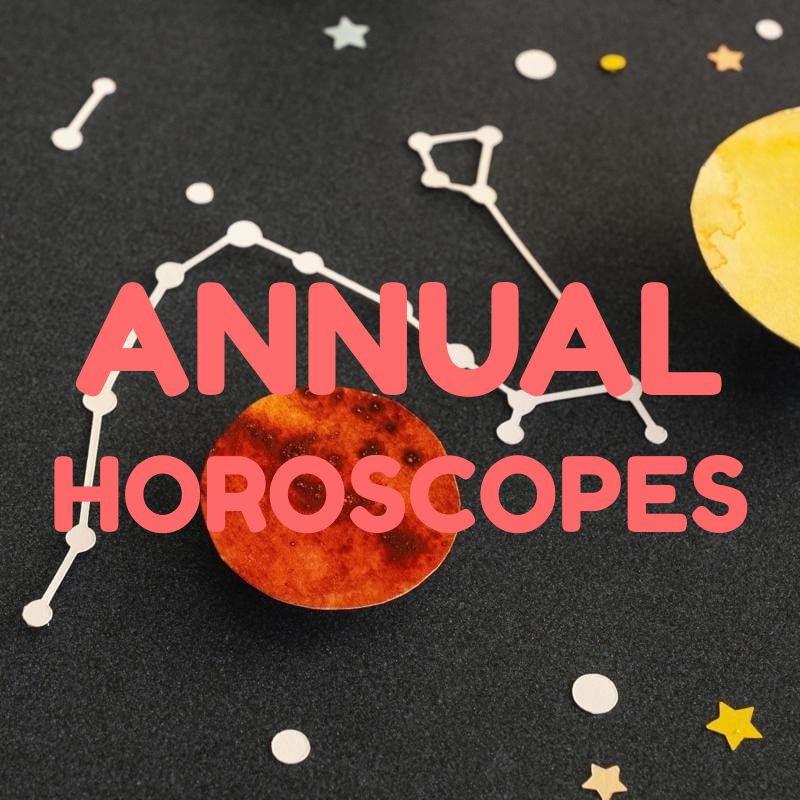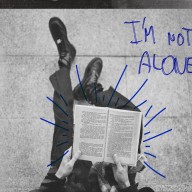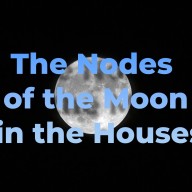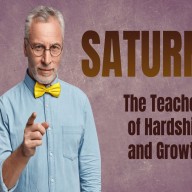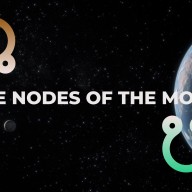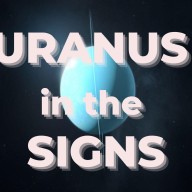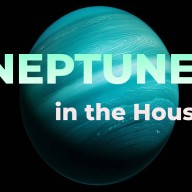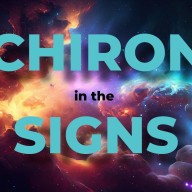Astrology can change your life. It did mine. Astrology illuminates the secret corners of the self, provides a key to understanding others, contributes a useful method for scrutinising relationships, and even offers a glimpse into the future. Beyond that, as with all great areas of knowledge, astrology has the power to alter perception. Once you know something about it, you never see the world in the same way again.
Using a vocabulary that’s both objective and poetic, astrology enlarges your curiosity (because after you absorb its principles, everyone you meet, no matter how dull the person or how fleeting the encounter, becomes a mystery waiting to be solved); it expands your insight into behaviour and motivation; and most of all, it increases your compassion. Some people think that astrology divides all human beings into twelve groups. How wrong they are! Astrology teaches that all human beings are subject to universal needs and desires — and that every individual is entirely and splendidly unique.
“The Sun and planets represent the spiritual consciousness in the heaven world; the signs of the zodiac represent the astral or psychic consciousness; and the houses of the horoscope as a whole, represent the physical consciousness.” Alan Leo
Astrology was and will be a field of conflicting views, since its place in the world is not that clear. There are those who accept and believe it, those who reject it as gibberish and nonsense for people of low intellectual capacity, and those who are sceptical and search to understand what really lies behind the veil of mass consumption Astrology. I consider astrology a tool — an objective tool — for understanding self, assessing relationships, examining your potential, and even making some basic decisions.
What can Astrology teach us? The most important thing of all, ourselves! Through our horoscope we can see the positive and negative elements of our personality. Having the knowledge of our attributes, we can work on them and become better people. We can learn the characteristics of the people we keep in our company and understand them, instead of blaming them for what they are. We can decide when is the best time to do something or to avoid something unpleasant. We can also choose to divert the dynamics of an event in a different form.
Astrology above all is a source of self-knowledge. It is a symbolic language that tries to interpret the different aspects of life. This is the reason why there are many fields in Astrology, with differences and similarities among them. There is Natal Astrology, Political Astrology, Karmic Astrology, Draconic Astrology, Esoteric Astrology, Horary Astrology and others, each one is special in its way and worth of study.
Every day, when we finish up reading the articles in newspapers or magazines, we take a peek at the forecasts made for the zodiac signs. Sometimes, we start discussions with people by asking them what their zodiac sign is. There are people who exaggerate and consider Astrology as Magic! There are also sceptical people who wonder how it is possible for the stars to influence someone’s life from so far away. All this happens because Astrology is a misunderstood science. Really, why is this happening?
“As Above, So Below” ―Hermes Trismegistus
DOES ASTROLOGY WORK? DO YOU BELIEVE IN ALL OF THESE THINGS?
Legend has it that Sir Isaac Newton, widely considered the greatest genius of all time, may have explored astrology. Newton had a complex, curious mind. In addition to inventing calculus and discovering the universal law of gravity, he was interested in alchemy (the quest to turn ordinary metals into gold), the Bible, and astrology. When his friend Edmund Halley (after whom the comet is named) made a disparaging remark about it, Newton, a conservative Capricorn, shot right back, “Sir, I have studied the subject. You have not.” Or so the story goes.
Like every other astrologer, I like to think that story might be true. After all, astrology has faded in and out of fashion, but it has never lacked followers. Catherine de Medici had Nostradamus as her astrologer, Queen Elizabeth I consulted John Dee, and other astrologers advised Napoleon, George Washington, J. P. Morgan, and Ronald (and Nancy) Reagan.
The question “Why does Astrology work?” has not been answered with certainty. Anyone who has taken the time to acquire a more profound knowledge of this subject has no doubt recognised the fact that there is indeed a correlation between the planetary positions in an individual’s birth chart and his or her personality and life events; nonetheless, an explanation for the exact cause and nature of this correlation, one which is able to withstand the rigours of scientific experimentation, has not yet been developed.
Carl G. Jung summarised that view when he wrote, “We are born at a given moment, in a given place, and like vintage years of wine, we have the qualities of the year and of the season in which we are born.”
I don’t know why astrology works, any more than Sir Isaac did. But I can assure you that it does work. The pattern that the planets made at the moment of your birth — that is, your birth chart or horoscope — describes your tendencies, abilities, challenges, and potential. It doesn’t predict your fate, though it does make some fates more easily achievable than others.
"Astrology, the noblest of sciences." —Dante Alighieri
Today most professional astrologers have two theories to profess:
a) The law of "Cause and Effect"
The planets, the Sun and the Moon influence us through as-of-yet undetermined cosmic energies. For example, gravity, or the light of the Sun, sent to earth either directly or reflected from the Moon or the planets – such energies might possibly, in theory at least, have some effect on human life, an effect whose “ebb and flow” could be measurable through the planetary positions at the moment of an event, such as a person’s birth. Depending on the place we were born, this energy was imprinted within us, like when scientists take earth or ice samples to find clues on the activity of the period they are investigating.
b) The Esoteric Theory
The modern basis of this theory is Carl Gustav Jung’s "Theory of Synchronicity". Though C.G. Jung is normally considered to be the “father” of synchronicity, the idea is in fact hardly a child of the 20th century. Towards the end of the 18th century, the German philosopher Gottfried Leibniz, without the aid of the discoveries of quantum physics, developed a theory which in many respects is almost identical to Jung’s synchronicity, at least as far as that which is of greatest interest to astrologers is concerned. Leibniz called his theory “pre-established Harmony”.
According to this theory, the planets are not seen as “causes” of earthly “effects”, but rather, the cosmos is seen as an “entirety” in which each and every part has an intimate, mysterious relationship to every other part. Any change in one part will always be accompanied by a corresponding change in another part. Yet these changes do not follow each other sequentially in time – such a sequence of events would suggest “cause and effect”. Instead, the changes occur simultaneously (Synchronicity), and thus, do not fit the “cause-effect” model.
In my personal view, the scientific method and the concept of synchronicity, as described in Jungian psychology, are not necessarily incompatible. In our daily lives, the cause-and-effect model demonstrably underpins much of what we do. Science has repeatedly confirmed this, and our practical experiences bear it out. Isn't it on this very foundation that we base most of our actions?
However, when we delve deeper into certain phenomena, such as telepathy or clairvoyance, a different principle seems to emerge. Here, the concept of synchronicity appears more relevant. It is plausible that synchronicity forms one of the pillars of holistic astrology. Reality, it seems, can be observed and experienced from various perspectives, each with its own legitimacy, even if they may initially appear contradictory.
While a definitive explanation for the effectiveness of astrology remains elusive within the scientific community, those who have dedicated themselves to its study recognise its efficacy. But what exactly does "work" signify in this context? Astrologers themselves often disagree on the extent to which their craft can be used to acquire reliable knowledge about individuals or situations. The limitations of astrology also seem to be a source of some ambiguity within the field.
WHY ASTROLOGY IS SO MISUNDERSTOOD?
First of all a blame falls on the Media, because they approach Astrology with generalities and platitudes, mostly on television shows or magazines, and in such a way, that any kind of seriousness from a fairly complex system which actually Astrology is, is lost. You underestimate i.e. the Art of Synastry by just saying: "Oh, My dear friend, you are a Leo so you are a perfect match for a Sagittarius"!
Astrology also suffers a lot from its own representatives. Astrologers are presented (and sometimes they do this intentionally) as caricatures. It seems difficult for the everyday man to imagine an Astrologer without fancy clothes and a crystal ball to forecast the future!
It is also our fault when we say that a zodiac sign is better than another one. My answer to this, is that there is no better or worse zodiac sign and that they all have a role to play in our evolution.
“Anyone can be a millionaire, but to become a billionaire you need an astrologer" J. P. Morgan
Astrology is not a ‘science’ in the classical sense of the term. It certainly borrows several elements from homologous sciences (i.e. astronomy) but it can’t prove mathematically what it is stated, especially on the subject of forecasts. However, it is neither an ‘art’ because Astrology is based on and moves in parallel line with Science.
Astrology is not a religion to believe in. However, if someone scratches the surface and looks deep underneath, he or she would learn to trust Astrology because it really works! A lot of people are wondering how astrologers are able to know personal things that nobody else knows, by simply looking at their chart!
In the realm of astrology, there's a fine line between offering insights and making dire predictions, especially when it comes to matters as significant as life and death. While it might seem tempting to consult the stars for a glimpse into the future, it's crucial to approach such matters with caution and scepticism.
Astrology, by its nature, is a complex interplay of celestial movements and human interpretation. However, to attribute a specific event like death solely to astrological factors is not only simplistic but also ethically questionable. There are myriad non-astrological elements at play in such decisive events.
Predicting the demise of a loved one, like your elderly uncle, can carry significant emotional weight and may inadvertently influence behaviour or decisions. Such forecasts can potentially become self-fulfilling prophecies, altering the course of events in unforeseen ways.
Moreover, astrology's predictive power has its limits. While certain planetary alignments may suggest favourable conditions for marriage or financial windfalls, they cannot compel individuals to act against their will. Ultimately, personal agency and external circumstances play pivotal roles in shaping our lives.
In essence, while astrology can offer insights and guidance, it's essential to approach it with a healthy dose of scepticism and ethical consideration. Responsible astrologers recognise the complexities of human existence and refrain from making dire predictions that could cause undue distress or influence behaviour. After all, our destinies are shaped by a multitude of factors, both cosmic and earthly, and it's ultimately up to us to navigate them with wisdom and prudence.
I will have to underline a hub point of Astrology which is a source of several confusions; forecasts. The future is not preconceived, but we can see its trends and dynamics. An event will come out sooner or later but we can't predict how strong its dynamic will be, we can only suspect, so when we do personal forecasts we always develop a range of possible results. This is why a forecast is a preparation for what is to come, so that we are ready to cope up with the events in a most positive way. When someone wants to consult an astrologer, he or she must be prepared for the fact they probably have a wrong time of birth. In this case, some events will occur in different times than the forecast said. In this case you do not blame the astrologer for being a charlatan!
"I don't believe in astrology; I'm a Sagittarius and we're sceptical" Arthur C. Clarke
At this point we observe the following phenomenon: several times when someone has a hard aspect and has difficulties in his life, he acts as if the world is about to be destroyed. If someone reads an article or when he visits an astrologer, he becomes paralysed when he hears those things that make his life difficult, we can come to the conclusion that he hasn’t worked with his inner self. It's impossible to check his lower self, thus becoming a pawn to the planet which causes difficulties to him or her. Another category of people are those who reject Astrology no matter what they hear, just because it’s not what they wanted to hear. Another category of people is just not ready to accept the prediction they hear.
There is something important you must know; the astrologer is not a clairvoyant nor a magician. Learning Astrology involves countless hours of study, and to write a single prediction requires a lot of time on a computer. The astrologer's familiarity with technology is more than necessary, it is the only way he or she can work.
BUT THE ZODIAC SIGNS DO NOT CORRESPOND TO THE CONSTELLATIONS?
Here comes the confusing part: The signs of the zodiac and the constellations that share their names aren’t the same. The signs are divisions of the ecliptic, each exactly one-twelfth of the total length — 30 degrees. The constellations have nothing to do with the signs.
The signs, the constellations, and the precession of the equinoxes
Thousands of years ago, when the Babylonians were establishing the principles of astrology, the constellations and the signs of the zodiac were in alignment. On the Vernal Equinox (the first day of spring), the Sun was “in” the constellation Aries: That is, if you could see the Sun and the stars simultaneously, you’d see the Sun surrounded by the stars of the Ram. In those happy days, the signs and the constellations coincided.
Alas, this is no longer the case. On the Vernal Equinox today, the Sun shows up amidst the (dim) stars of Pisces — a very different kettle indeed.
The reason for this shift is that the Earth wobbles on its axis, which traces a circle in space like the spindle of a spinning top. As the axis shifts, the constellations seem to slip backwards. The amount of slippage over a human lifetime is minuscule, but over generations it adds up. As a result, every equinox takes place a little earlier in the zodiac than the one before. This process is called the precession of the equinoxes. It explains why the vernal equinox, which used to occur in the constellation Aries, now takes place in Pisces.
When the equinox moves back even further, to the constellation of the Water Bearer, the Age of Aquarius will officially begin. Astrologers differ about when that will be. Some are convinced that it’s happening now. Others believe that it’s decades — or centuries — away. Eventually, the cycle will begin again. Around the year 23800, the Vernal Equinox will return to Aries, and astrologers will be able to skip this entire explanation. Meanwhile, constellations of the zodiac and the signs of the zodiac aren’t the same.
Sceptics who attack astrology — and for some reason, these wary souls can be amazingly hostile — often point to the changing position of the constellations and the precession of the equinoxes as proof that astrology is bogus. The truth is that astrologers are well aware of this phenomenon. They consider the constellations as signposts and little more. What matters is the division of the ecliptic. The stars, glorious though they are, have nothing to do with your sign.
“Astrology is assured of recognition from psychology, without further restrictions, because astrology represents the summation of all the psychological knowledge of antiquity.” Carl Jung
HOW DOES ASTROLOGY WORKS?
The tool that we have to work with, is the Chart or Horoscope. Depending on what we want to look for, we use the appropriate chart. Through the study of the chart we see our features, our skills, our interaction with others, as well as coming events.
Let’s see some examples of the charts we use in Astrology:
Natal Chart: This is the Basic Chart (the most important) we use. In this chart we can see the person and we can say this is his identity.
Draconic Chart: A chart in which we see the past experience, if we accept the reincarnation theory, or all of our genetic predispositions.
Progressed Chart: A man does not stay stagnant and the same happens in his Chart, where we can see his evolution over time.
Synastry chart: Two people come closer and through the analysis of this chart, we can see whether they can find common ground.
Solar Return chart: The so-called annual chart. This chart is casted on a person’s birthday and provides the trend of the year from his birthday to his next birthday.
Lunar Return chart: The so-called monthly chart. This chart is casted the day Moon returns to the native's natal position. This horoscope shows us the trends of the current month.
Horary Chart: This chart is casted at a specific time to answer a given question.






